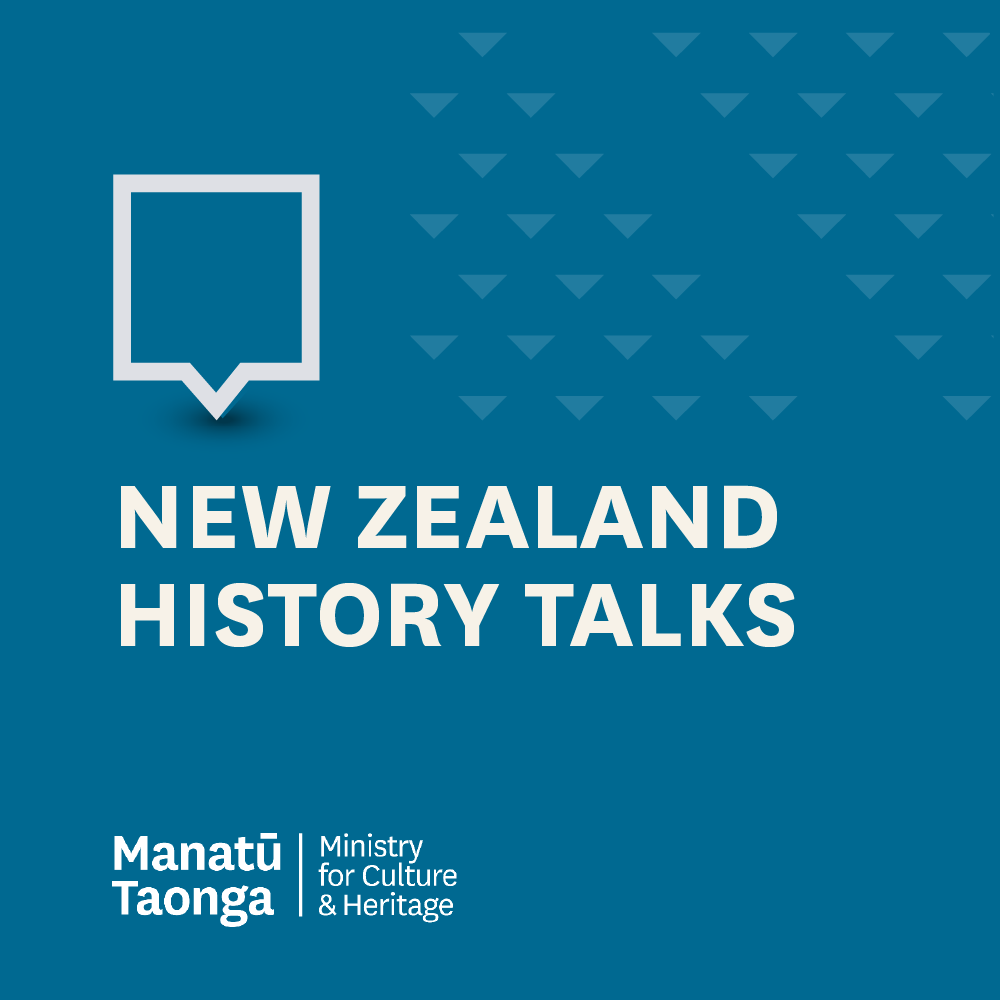Episodes
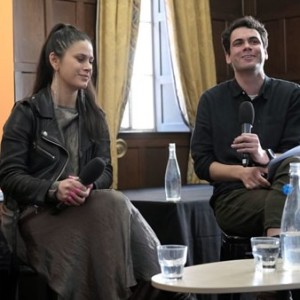
Friday Sep 23, 2022
Mahuru Māori: Māni Dunlop and Jamie Tahana
Friday Sep 23, 2022
Friday Sep 23, 2022
Māni Dunlop (Ngāpuhi) and Jamie Tahana (Ngāti Pikiao, Ngāti Makino, Te Arawa) are journalists and national broadcasters who actively champion te reo Māori me nga tikanga Māori through their work.
Māni was the first Māori journalist at RNZ to host a weekday show, while Jamie is one of RNZ’s youngest Māori News Directors. They began their careers as RNZ interns, Māni in 2011 and Jamie in 2014. Māni initially worked in the general newsroom focusing on housing and social issues. Jamie started at Radio New Zealand Pacific (formerly International) with a focus on climate change and political undulations.
Now, they’re incredibly popular Māori broadcasters. Every week, more than 600,000 people listen to RNZ and in 2021 the listenership of Te Ao Māori shows increased 55%. Thousands of Twitter followers want to know what their ‘takes’ are, beyond the stories they write and produce to the public.
For Mahuru Māori, Māni and Jamie spoke about their experiences, challenges, and triumphs of being at the front line of change in public radio. The past decade has seen dramatic changes in public radio, influenced by iwi radio, social media, politics, and pandemics. Today, these two young Māori journalists are now major decision-makers in the inclusion of Māori content and te reo Māori at a national level.
Facilitated by Pou Matua Mātauranga Māori, Senior Historian Mātauranga Māori, Matariki Williams (Tūhoe, Ngāti Hauiti, Taranaki, Ngāti Whakaue).
These monthly Public History Talks are a collaboration between the Alexander Turnbull Library and Manatū Taonga Ministry for Culture and Heritage. Recorded live at the Wellesley Boutique Hotel on 6 September 2022.
Download a transcript of this talk:
https://nzhistory.govt.nz/files/pdfs/transcript-mahuru-maori-2022-09-07.pdf
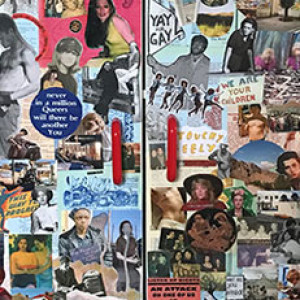
Wednesday Jun 02, 2021
Inside the Bubble
Wednesday Jun 02, 2021
Wednesday Jun 02, 2021
Inside the Bubble : Kei Roto i te Miru is a collection of human stories recorded during Covid-19 lockdown in Aotearoa New Zealand. Oral historians worked in partnership with Ngā Pātaka Kōrero Auckland Libraries and Manatu Taonga to collect, create and conserve viewpoints from around the country.
Oral historian Will Hansen interviewed his flatmate Jack Hitchcox on ‘Queerintine’; living in an all queer flat during lockdown, being a frontline health worker, making art, watching films, reading books, transitioning, coming out to family and friends and future plans.
For further information or support check out InsideOut or Rainbow Youth
Transcript of this talk:
https://nzhistory.govt.nz/files/documents/jacks-story-transcript.pdf
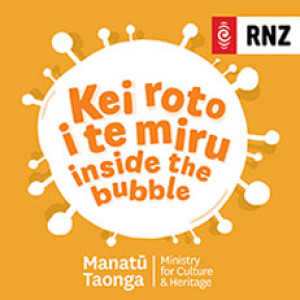
Thursday Apr 08, 2021
Kei roto i te miru: inside the bubble
Thursday Apr 08, 2021
Thursday Apr 08, 2021
What happens when a pandemic hits and the country is locked down? How can we help keep New Zealanders connected?
In collaboration with Sue Berman, Principal Oral History Advisor Auckland Libraries, staff at Manatū Taonga Ministry for Culture and Heritage got on Zoom and hatched a plan to use free online software to encourage nine oral historians from various communities around the country to collect short oral histories with our support. Thirty-five stories with Ngāti Porou, LGBTQI community members, rural Pākehā, health workers, musicians, young Mums, Pacific Island New Zealanders, Northland community workers and Chinese New Zealanders were the result.
In this talk Tuaratini will discuss her involvement in the project as a community interviewer, while radio producer and journalist Teresa Cowie will describe her experience working on the creative output of the oral histories. The resulting weekly podcast series, ‘Kei roto i te miru: inside the bubble’, launched on 25 March this year based on the interviews undertaken during the 2020 Covid-19 lockdown.
These monthly Public History Talks are a collaboration between the National Library of New Zealand and the Ministry for Culture and Heritage.
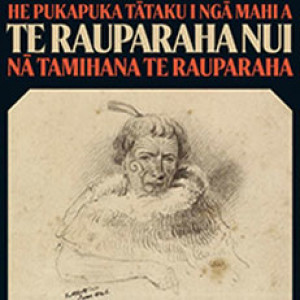
Thursday Mar 04, 2021
Tamihana Te Rauparaha’s life of Te Rauparaha
Thursday Mar 04, 2021
Thursday Mar 04, 2021
‘He Pukapuka Tātaku i ngā Mahi a Te Rauparaha Nui’ is a 50,000-word account of Te Rauparaha’s life written by his son Tamihana Te Rauparaha in the late 1860s. A rich source of Ngāti Toa history, language and culture, it offers fascinating insights into traditional Māori society and the tumultuous history of the 1820s and 1830s. This was an era characterised by intertribal conflict and the redrawing of the tribal map of Aotearoa, as well as by early encounters between Māori and Europeans that were largely conducted on Māori terms. Tamihana’s account of his father’s life has now been published in full for the first time in a parallel Māori/English edition.
In this talk, the book’s translator and editor Ross Calman will discuss the historical context that led to the creation of Tamihana’s manuscript, give an overview of how the manuscript has been represented by various writers and translators over the past 150 years and describe some of the challenges he faced in interpreting the manuscript for a modern audience.
These monthly Public History Talks are a collaboration between the National Library of New Zealand and the Ministry for Culture and Heritage.
Recorded live at the National Library of New Zealand, 2 December 2020.
See also Te Rauparaha: Kei Wareware podcast series
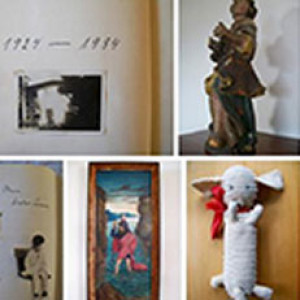
Wednesday Oct 07, 2020
Unpacking the Suitcase
Wednesday Oct 07, 2020
Wednesday Oct 07, 2020
When German-Jewish refugees arrived in New Zealand in the 1930s fleeing Hitler’s Europe, they brought everything they could from their former homes: furniture, luggage, personal documents, musical instruments, artwork, books, silverware, linen, a typewriter. Some of these humble and remarkable domestic objects survive today, a few in public heritage collections; most in the private family homes of descendants.
But while the Jewish refugee migration story is well known, less so is the story of those objects. In this talk, Louisa Hormann shares findings from a research project exploring the relationships between Holocaust survivor refugee families, their descendants, and the material objects they have inherited.
These monthly Public History Talks are a collaboration between the National Library of New Zealand and the Ministry for Culture and Heritage.
Recorded live at the National Library of New Zealand, 7 October 2020.
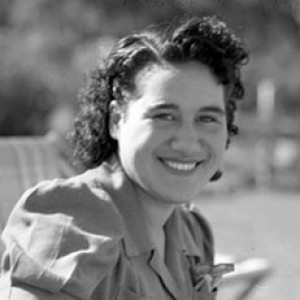
Wednesday Sep 02, 2020
Māori women and the armed forces in WWII
Wednesday Sep 02, 2020
Wednesday Sep 02, 2020
Angela Wanhalla (Kāi Tahu), is an associate professor in the History Programme, University of Otago. She teaches and writes about New Zealand history and is currently involved in a collaborative research project on the histories and legacies of the Māori home front during the Second World War.
In this Public History Talk Angela Wanhalla looks at the recruitment of Māori women into the auxiliary services, why they joined, and how their wartime service impacted on their post-war lives.
These monthly Public History Talks are a collaboration between the National Library of New Zealand and the Ministry for Culture and Heritage.
Recorded live at the National Library of New Zealand, 2 September 2020.
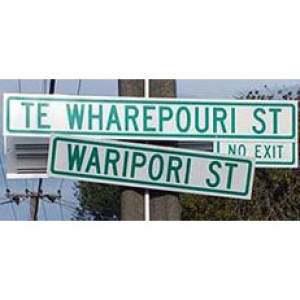
Monday Jul 20, 2020
Memorials, names and ethical remembering
Monday Jul 20, 2020
Monday Jul 20, 2020
How do we remember the past? What place do colonial memorials have in public spaces? How can we better represent diverse histories in the landscape?
In this first Public History Talk for 2020, Professor of Māori education at Victoria University, Joanna Kidman hosts a panel to discuss these issues and offer a facilitated conversation with the public on colonial memorials, history and memory.
About the panelists:
Morrie Love (Te Atiawa ki te Upoko o te Ika a Mauī, Taranaki, Ngati Ruanui) is Director Raukura Consultants, a writer and historian.
Nicky Karu (Hauraki: Paeroa and Thames Coast) Tira Poutama Iwi Partnerships.
Ewan Morris (Pākehā) is a historian with an interest in public memory and cultural contestation over symbols.
These free Public History Talks are a collaboration between the National Library of New Zealand https://natlib.govt.nz/ and Manatū Taonga/Ministry for Culture and Heritage https://mch.govt.nz/
Recorded live at the National Library of New Zealand, 15 July, 2020.
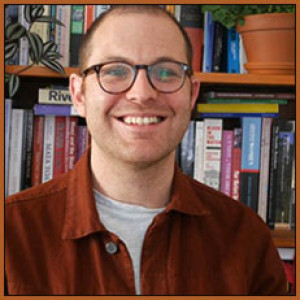
Wednesday Oct 02, 2019
Wairoa Lockout: an oral history
Wednesday Oct 02, 2019
Wednesday Oct 02, 2019
Since 2010, the small town of Wairoa on the East Coast of New Zealand has been at the centre of the most bitter and protracted industrial dispute in New Zealand’s recent history. The agri-business giant, Talley’s Group, took over the town’s meat plant in 2010 and commenced a campaign to ‘draw the line on union influence’.
Drawing on oral histories, this talk by Ross Webb focuses on the campaign by meat workers to save their union, the sacrifices involved, and the legacy of three successive lockouts on workers and the community.
Ross Webb is an historian with an interest in labour history. He is currently a PhD candidate at Victoria University, Wellington.
These monthly Public History Talks are a collaboration between the National Library of New Zealand https://natlib.govt.nz/ and the Ministry for Culture and Heritage https://mch.govt.nz/.
Recorded live at the National Library of New Zealand, 2 October 2019.
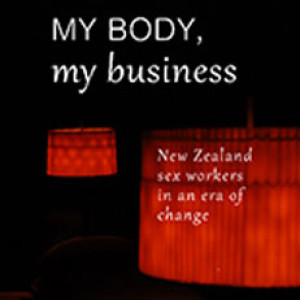
Wednesday Apr 03, 2019
My Body, My Business
Wednesday Apr 03, 2019
Wednesday Apr 03, 2019
In this presentation, oral historian, writer and editor Caren Wilton talks about using oral history – ‘history from below’ – to document what can seem to be a secret or hidden world, and telling stories that are both extraordinary and ordinary.
Her book 'My Body, My Business: New Zealand sex workers in an era of change’ is a collection of intimate portraits of New Zealand sex workers, based on her series of oral-history interviews carried out over a nine-year period.
These monthly Public History Talks are a collaboration between the National Library of New Zealand https://natlib.govt.nz/ and the Ministry for Culture and Heritage https://mch.govt.nz/.
Recorded live at the National Library of New Zealand, 3 April 2019.

